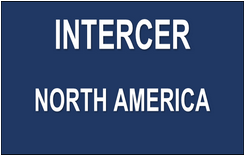Standard ISO 27001 defines requirements for information security managements systems in the company. The main aim is to ensure protection of data and information to avoid their loss or theft. This helps to reduce the risk of information leakage and it also improves credibility of the company.
Security management systems for the supply chain based on ISO 28000 will help you with the timely detection of security risks, from production to final sale. In this way, you will be able to better assess potential risks and to prevent emergency situations or significantly mitigate their impact.
Standard ISO 22000 connects all previous standards and defines safety system requirements for the whole chain, from ingredients to final products, their packaging and distribution. With this certification you will control food quality in the whole chain and you will be also able to prevent possible quality reduction, contamination or deterioration.
CE marking must be affixed to the product, its packaging, instructions for use or to a warranty card. CE marking must be affixed visibly, legibly and indelibly. At the same time, the product must not bear any similar or interchangeable marking.
Zero Waste aims to establish an evaluation system for the correct management of an organization's waste, highlighting legal compliance and the principles of reducing, reusing and recycling, eliminating waste dumping as an option.
Certification and guide to define the minimums to be taken into account by a School Education center to prevent bullying, and structure a management system that allows prevention and proportionate action in cases of bullying
The aim is mainly to ensure the appropriate quality and safety of products. Certified products will get a licence which will allow them to use a respective marking (e.g. CE marking).
Our team of experienced smart contract auditors can perform audits for tokens, crowdsales, NFTs, marketplaces, gambling games, financial protocols, and more
Requirements for good distribution practice are based on legal requirements and Guidelines of the European Commission on Good Distribution Practice of Medicinal Products for Human Use
BIG DATA ANALYSIS: is the technology used to analyze a huge amount of structured and unstructured data that is collected, organized and interpreted by software, transforming it into useful information for decision making and to generate ideas about market trends and behavior of its consumers and data of the company itself.
CERTIFICATION SERVICES

Certification gives confidence that your organization meets recognized international standards, giving you a competitive edge in the marketplace.
Certification Audits from INTERCER demonstrates your organization is committed to meeting high standards while enhancing your organizationís credibility and reputation.
It gives confidence that your organization meets recognized international standards, giving you a competitive edge in the marketplace.
A system certification is the end result of a series of audits and assessments.
A certificate demonstrates that a product, service or system meets specific requirements, and that it has been checked by an independent body.
Certification helps to build trust by showing that your product or service meets customer expectations. In some industries, it is a legal or contractual requirement.
Benefits of ISO Certification in USA
The International Organization for Standardization (ISO) has developed over 22000 ISO certifications. An organization can apply for ISO certification in USA to understand and achieve the organizational needs and requirements. The following are the benefits of ISO certification:
ISO Certification in USA can take your company from one level to another by enhancing the efficiency of your processes.
It helps to reduce work-related risks and environmental threats in your organization.
It gives high emphasis on balancing the usage of energy encouraging cost saving in the organization.
It helps to meet and fulfil all the requirements of the customers.
It maintains environmental, health, and safety measures in the organizations.
INTERCER NORTH AMERICA
880 Third Avenue, 5th Floor, New York, NY 10022
Office Hours: Monday through Friday. 9:00 am to 18:00 pm Eastern Standard Time (EST)
THIS WEBSITE DOES NOT USE COOKIES OR ANY MEANS OF VISITOR CONTROL.
The IBTF 36001 standard is an international compliance framework specifically designed for auditing and certifying blockchain technology investment projects

